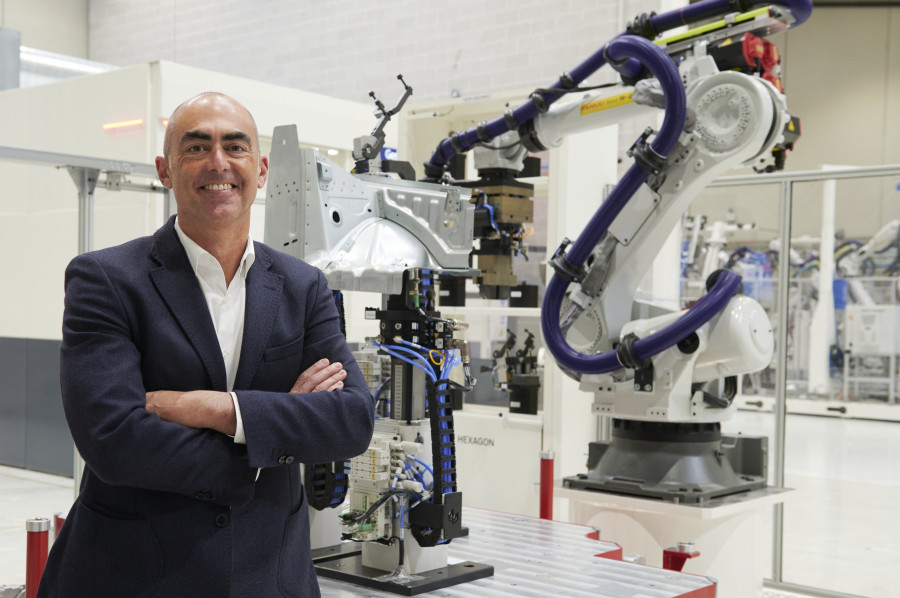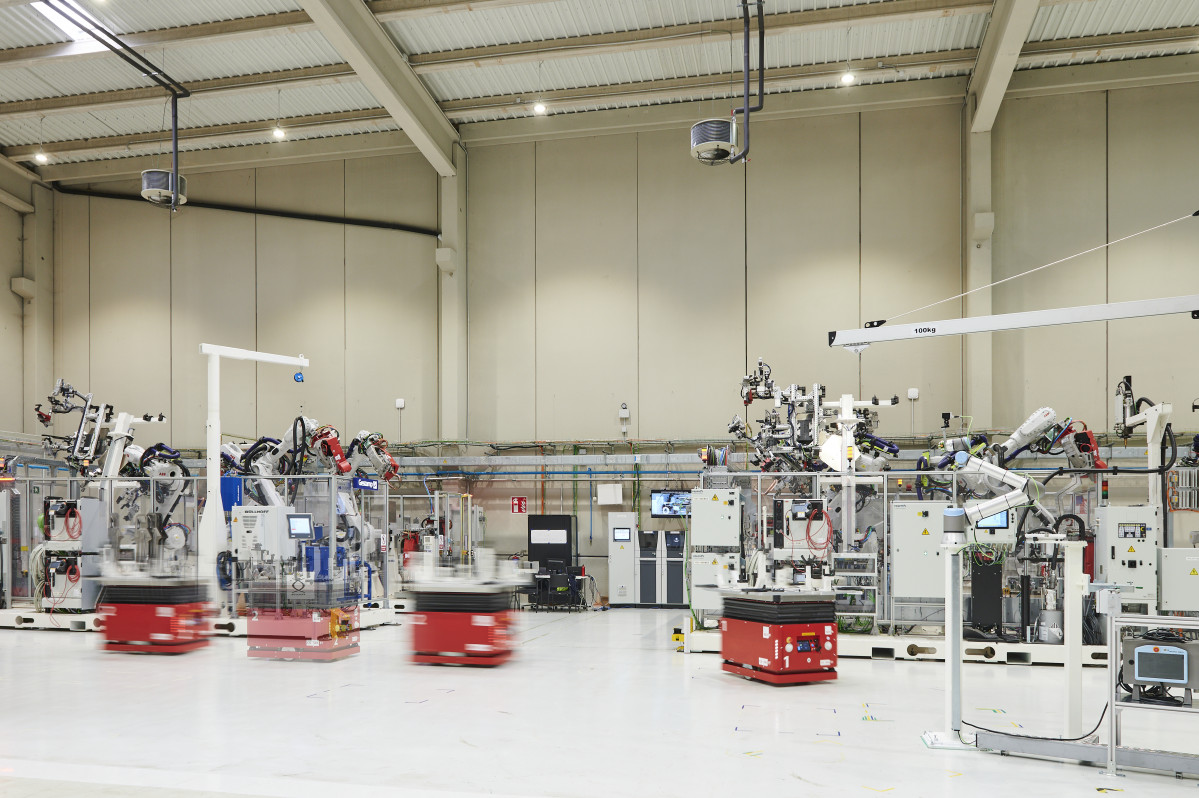“Having an Internet of Things as complete as possible is what makes the difference"

AutoRevista.- Within Gestamp’s Smart Factory strategy, how are advanced solutions implemented for the highest degree of connectivity in plant flows?
René González Castro.- Data is the essence of the Smart Factory and the main source of data is the Internet of Things. Having an Internet of Things as complete as possible is what makes the difference and for this we need the highest degree of connectivity possible. The most advanced solutions that we are testing go through wireless communication technologies that allow us enough flexibility to connect all kinds of assets, whether fixed or mobile.
AR.- Gestamp is making significant progress in areas such as 5G technology and developing collaboration frameworks with partners such as Telefónica. What are the benefits and what are the next steps?
R.G.C.- Any technology that helps us advance the concept of the smart factory is interesting for us, so we are willing to learn and establish alliances with the most strategic partners. Our relationship with Telefónica in the field of 5G is for this reason. Back in 2019, when we analysed the capabilities that 5G would give us, we understood that it wasgoing to be a decisive technology to achieve massive connectivity with total flexibility, and we did not hesitate, we began to explore use cases and the relationship with Telefónica was growing as long as we were pioneers in the application of technology.
It is not the only alliance we have with a partner for the use of technology or its development. We have many other cases with large and small companies. It is about creating the ecosystem of partners that helps us incorporate the technology that will allow us to advance in our innovation strategy. It is one of the keys to innovation in our opinion. No one innovates alone.
AR- What is the company’s focus in areas such as Big Data, IoT, cloud information management and cybersecurity?
R.G.C.- They are all key pieces to build the smart factory concept. The focus is to explore these technologies and try to gain as much knowledge and experience as possible to get the most out of them as a whole. In other words, each technology separately gives us things, but all of them together and well-orchestrated help us build ambitious concepts such as the smart factory. For this we have specialist teams that innovate and deploy solutions, a wide network of partners and a standardisation that allows us to scale solutions.
"Any technology that helps us advance the concept of the smart factory is interesting for us”
AR.- What is the projection of connectivity in a flexible factory in which mobile
automatons can change concepts in terms of process linearity?
R.G.C.- Flexibility is one of the attributes, perhaps the most important, of our smart factory. The smart factory is flexible, autonomous and sustainable, among other things. These attributes are important to successfully address what is taking place in the sector. One of the solutions we use when it comes to achieving flexibility is mobile robotics. For connectivity with mobile robots we have to use wireless technology, since their movement prevents them from being wired. Connectivity means that we can integrate these robots with the rest of the factory elements: with other robots, other machines,
quality, warehouses, so that everything can work in a coordinated and autonomous way.
The management of the entire complex is carried out with different layers of software that control and decide many aspects of the factory’s operation. The complexity generated by this highly flexible concept can only be managed with a high degree of digitisation and automation.
AR.- Given the current environment of uncertainty and volatility, how can ICT contribute to creating more robust processes and supply chains?
R.G.C.- We create more robust processes thanks to control and automation. We can anticipate failures, detect and correct inefficiencies, in addition to looking for the best scenarios to try to function in the most optimal way at all times. The same concepts that we apply to an individual factory can be applied to a group of factories, which can be from the same company or from several companies, so they are equally applicable to supply chains. We speak then of a broader idea that is that of Smart Industry. In short, they are the same concepts and technologies that we apply to the smart factory extended to the
supply chain.
AR.- Although Gestamp has already publicised its Flexible Factory project with a horizon of 2025, how are new deadlines managed taking into account the speed oftechnological evolution?
R.G.C.- After six years of innovating, developing and standardising, we present our smart factory concept with which we will progressively change our operating model. As the product changes and new investments are required, in our case with the transition from combustion to electric cars, we will introduce this new concept in our operations and factories. But this does not mean that we are going to stop, that we are going to stop innovating, we will continue to innovate and develop new solutions on the same concepts or even new concepts if we think it is necessary.
Interview published in AutoRevista 2.372

A requerimiento de AutoRevista sobre la imposición de aranceles del 30% a vehículos y componentes de la Unión Europea por parte de la Administración Trump, desde CLEPA señalan que "instamos encarecidamente a la UE a que impulse una exención para las piezas de automóviles en cualquier acuerdo.

La Asociación Española de Renting de Vehículos acaba de presentar su informe anual, y con él cifras más que optimistas para el segmento. Tanto es así que el parque de vehículos en renting ha crecido el 6,11% durante el primer semestre de este 2025 (una cifra levemente superior a la prevista por la asociación, el 6%), lo que implica que este asciende a 984.354 unidades totales.

Nissan ha construido un nuevo centro de reacondicionamiento de vehículos en la Planta de Nissan Ávila, diseñado para ofrecer a los clientes la experiencia de reestrenar un coche, gracias a un proceso altamente especializado y con los estándares de calidad Nissan.

PowerCo Battery Spain (PowerCo) y el ITE (Centro Tecnológico de la Energía) han establecido un acuerdo de colaboración con el objetivo de incrementar las capacidades formativas sobre esta industria pionera en España.

La filial española de Dacia ha designado a un nuevo Comité de Dirección con el propósito de continuar creciendo en 2025, después de lograr los mejores resultados de su historia en el primer semestre del año con un 9,6% de la cuota del mercado a particulares.

